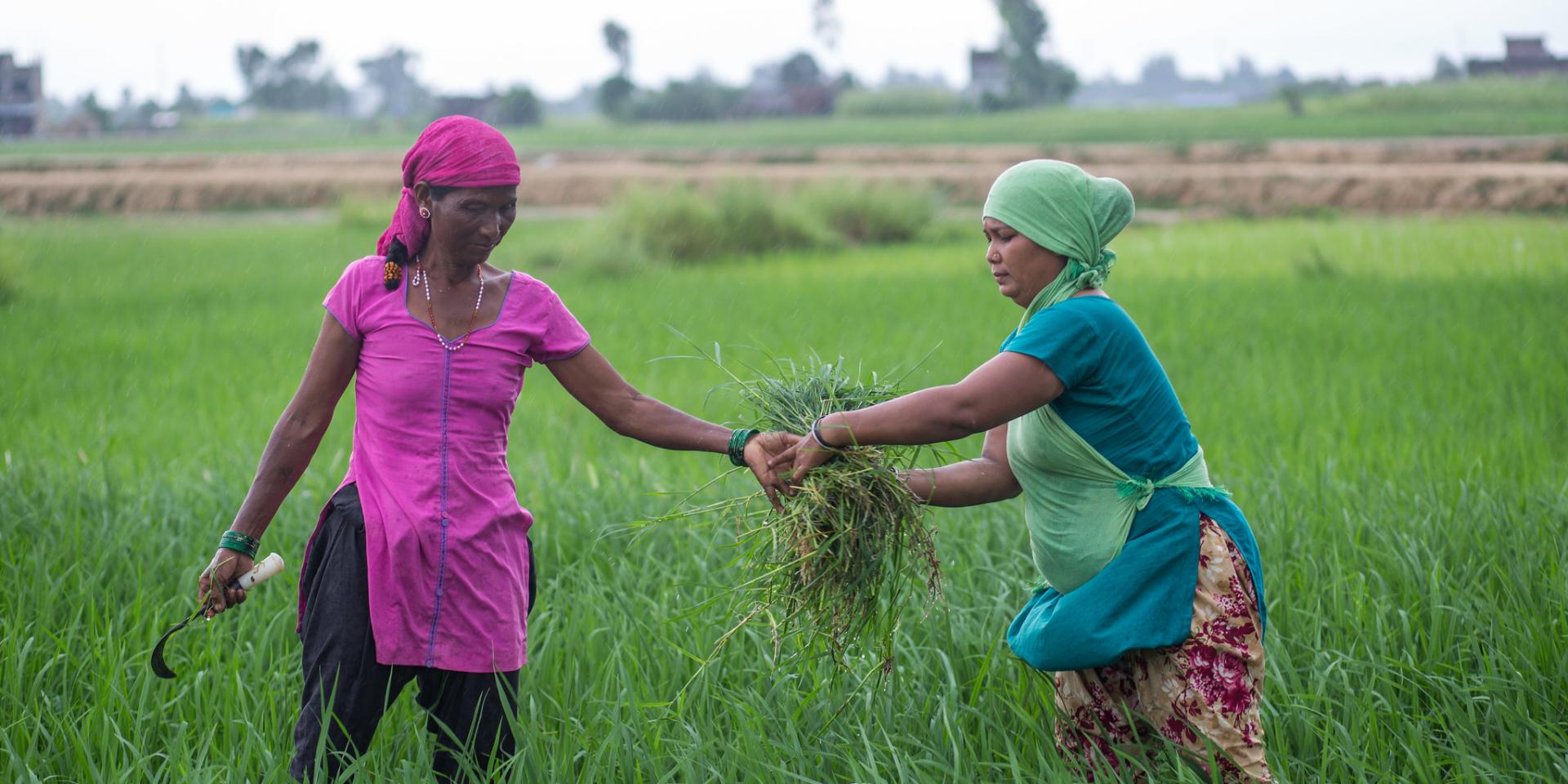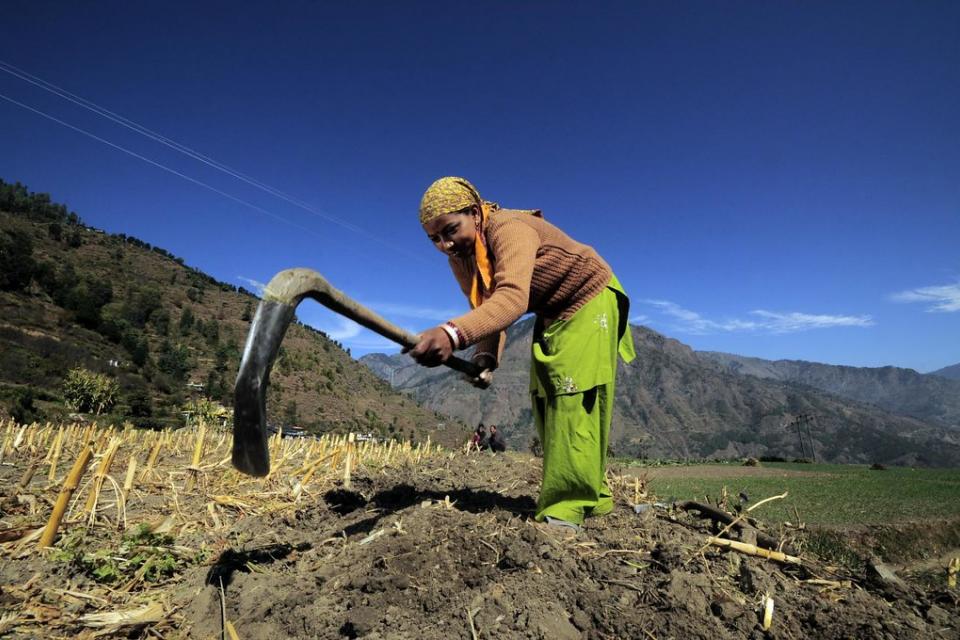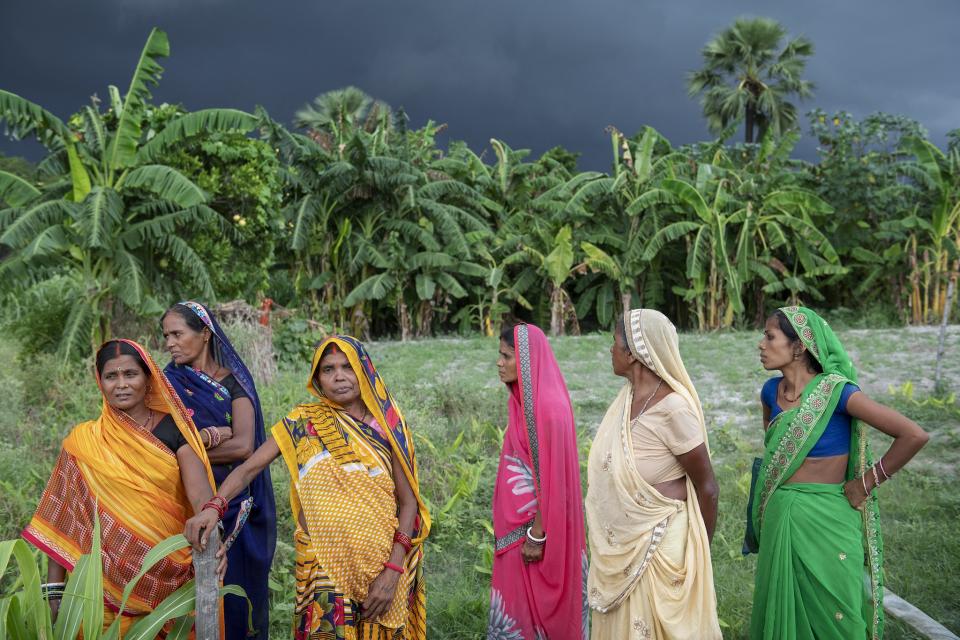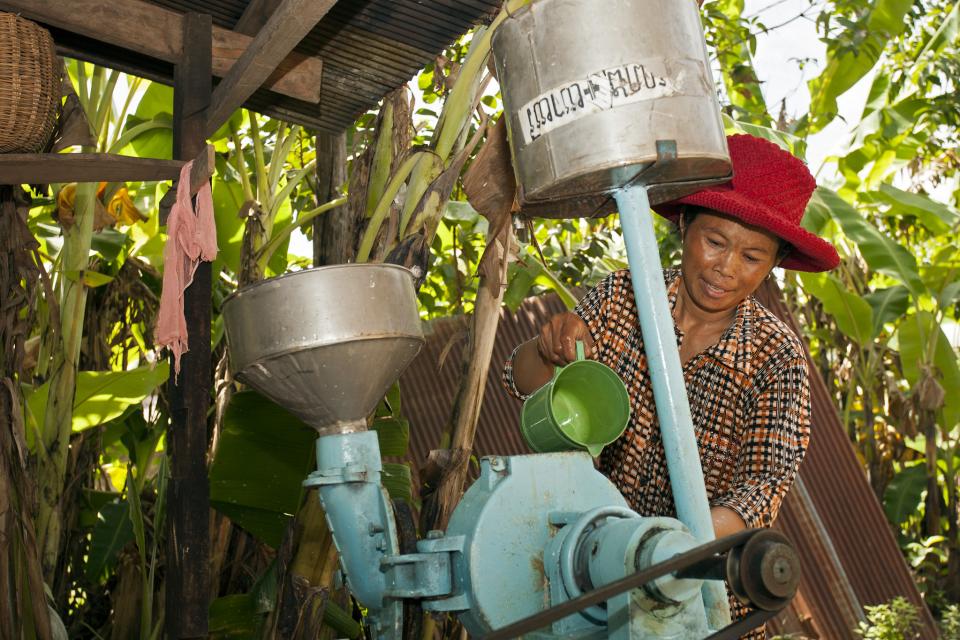The invisibility of women’s labor in Bangladesh’s agriculture

Recognizing women’s roles in agriculture is key to unlocking economic empowerment, bolstering food security and improving nutrition nationwide.
Gole Nur Begum, a mother of three daughters and one son, has been farming for over a decade. Her journey began with support from an agricultural supervisor from the Department of Agriculture Extension. Today, she cultivates a variety of crops, including vegetables, lentils, sunflowers, and paddy. In her own words, “Except salt, we barely need to buy any essentials from the grocery store or market.” Gole Nur is also a member of the North Khekuani (Uttar Khekuani) Water Management Group (WMG), and her work has helped fund her youngest daughter’s education. Yet, when asked to introduce herself, she simply says, “housewife.”
Her daughter In-law’s family and her own relatives would not appreciate her identifying herself as a “farmer.” As she puts it, “A woman working in the field is not something to highlight or recognize; rather, it should be hidden so that it doesn’t bring any shame to the family.” This reluctance to identify as a farmer stems from deep-rooted social norms. This is a sentiment echoed by both women and men. The husband of another woman WMG member says, “I permit her (his wife) to join (the WMG) because we may benefit from the committee, but how can she work with other men? What will people think?” Lack of support from husbands, as well as the masculinity of these institutions discourages women from taking leadership positions, leaving men to dominate all decisions related to agriculture and participate in any meetings.
The invisibility of women’s labor
Gole Nur’s story echoes the experiences of countless other women, including formal members of WMGs across Patuakhali and Khulna. Despite engaging in diverse agricultural tasks, such as seed sowing, harvesting, storage and processing, men, families, and, more importantly, the women themselves, undervalue and discount this contribution. It is as if their work in the fields is invisible, hidden behind the level of “housewife.”
We saw this firsthand when we asked male members of the executive committee of a WMG in Khulna about the occupations of its women members, they initially introduced the women as ‘housewives’. However, upon further probing, it was revealed that these women actively participate in farming. Along with household responsibilities, women shoulder increasing levels of productive agricultural work, yet, feel hesitant to recognize themselves as “farmers.” This is due to prevalent social norms that associate women working in the fields, in public domains with an element of shame and indignity.


